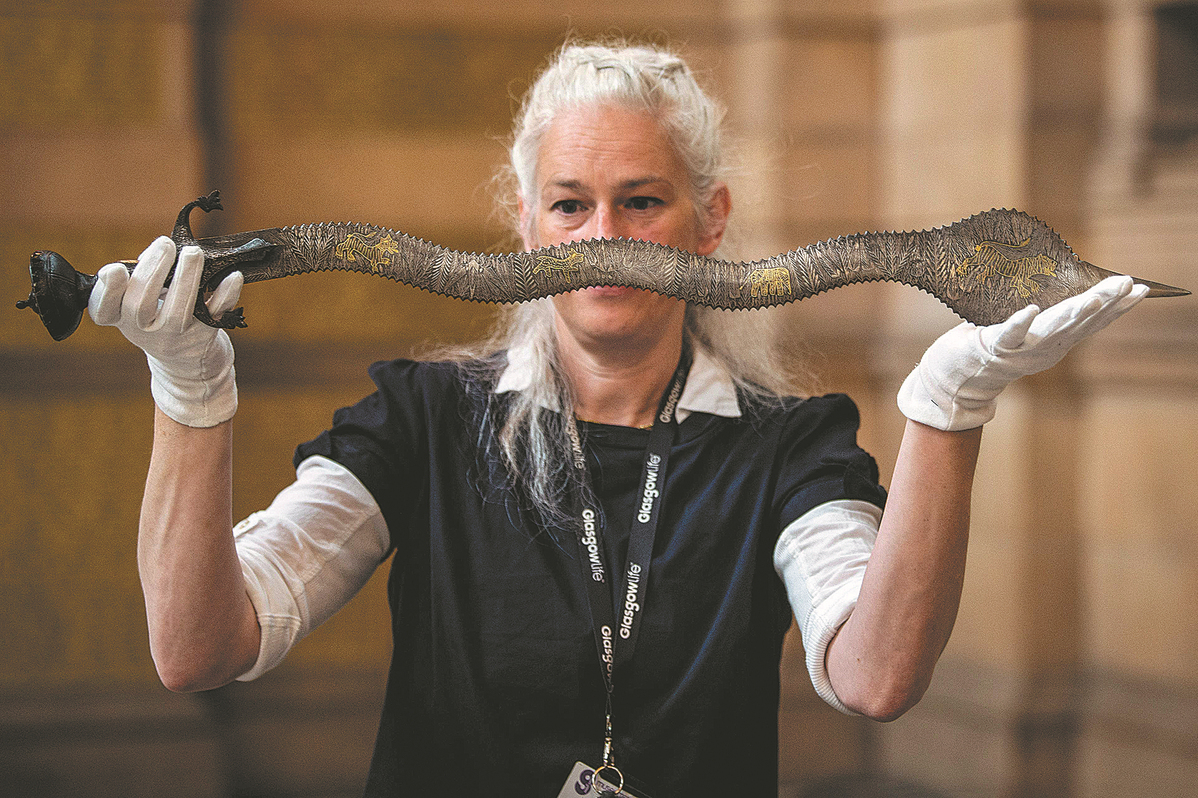History catches up with thieves of opportunity


Safekeeping or theft?
There are some who argue that such artifacts should stay in Western museums as it is best way of conserving the historical artifacts and educating the public.
Gary Vikan, former director of the Walters Art Museum in Baltimore, United States, told The New York Times that the cultural atrocities committed by the Islamic State, which destroyed ancient relics and sites in Syria, Iraq and Libya, "will put an end to the excess piety in favor of the repatriation model" and argued that institutions in the West help preserve the world's cultural heritage.
In an article in The Guardian newspaper, Tristram Hunt, director of the Victoria and Albert Museum, or V&A, in London, said the restitution of objects will take away the educational value and history for visitors.
"For a museum like the V&A, to decolonize is to decontextualize: the history of empire is embedded in its meaning and collections, and the question is how that is interpreted," he wrote. "Perhaps the real challenge is how we create more, rather than fewer, universal museums -not in Europe and the West, but across Africa, India and the Global South. Our aim should be to detach the universal, encyclopedic museum from its colonial preconditions and reimagine it as a new medium for multicultural understanding."
But others say such arguments are flawed and by holding on to the artifacts Western museums dispossess people of their culture.
Mark Horton, professor in archaeology at the University of Bristol, said in an article published by the World Economic Forum: "The argument is often advanced that by coming to the West, these objects were preserved for posterity - if they were left in Africa they simply would have rotted away. This is a specious argument, rooted in racist attitudes that somehow indigenous people can't be trusted to curate their own cultural heritage. It is also a product of the corrosive impact of colonialism."
Smith of Glasgow University said: "There are no justifications to keep a looted cultural object outside of its community of origin when this object is claimed by said community. There are no justifications for the looting and exploitation of one culture for the'education' of another."
Meanwhile, IE University's Tejero said: "Museums have several missions, and many have done an extraordinary task regarding the conservation of these pieces and have fostered research around them. These artifacts may stand as a very powerful pedagogical tool to open questions and advance society as a whole."
She added:"It is crucial to have a developed understanding on the details of each artifact: How did it arrive? Where is it at present? How is the piece presented and explained? What does it mean to the community of origin? ... These questions need to open conversations that lead to a consensus where the different stakeholders are reasonably comfortable."


















